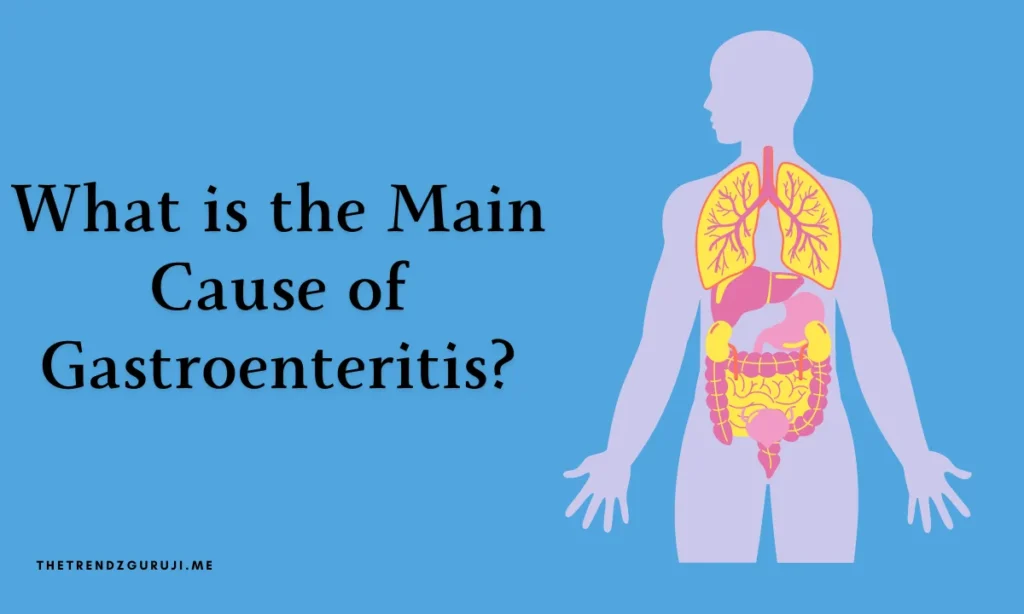Wellhealthorganic.com : Key Signs of Gastroenteritis, commonly known as the stomach flu, is an inflammation of the gastrointestinal tract, which includes the stomach and intestines. This condition can cause a variety of symptoms, ranging from mild to severe, and it’s crucial to understand these signs for early detection and treatment. In this article, we’ll explore the key signs of gastroenteritis as highlighted on wellhealthorganic.com, alongside the causes, types, management, and prevention of this condition. By the end, you’ll have a comprehensive understanding of gastroenteritis and how to deal with it effectively.
What is Gastroenteritis?
Wellhealthorganic.com : Key Signs of Gastroenteritis is an infection characterized by inflammation of the stomach and intestines. This condition is often caused by various viral, bacterial, or parasitic infections. It’s commonly referred to as the stomach flu, though it is not related to the influenza virus. The primary result of gastroenteritis is severe irritation and inflammation of the gastrointestinal tract, leading to symptoms like nausea, vomiting, diarrhea, and abdominal cramps.
Types of Gastroenteritis
There are different types of gastroenteritis, categorized based on the cause of the infection. Viral gastroenteritis is the most common, often caused by norovirus or rotavirus. Bacterial gastroenteritis can be triggered by bacteria like E. coli, Salmonella, or Campylobacter. Parasitic gastroenteritis, though less common, occurs due to parasites such as Giardia or Cryptosporidium. Each type has slightly different symptoms and treatment approaches, making it essential to identify the underlying cause.
Symptoms and Causes
The symptoms of gastroenteritis can vary depending on the type of infection and the individual’s overall health. However, wellhealthorganic.com: key signs of gastroenteritis typically include nausea, vomiting, diarrhea, and abdominal pain. In some cases, individuals may also experience a fever, headache, and muscle aches. These symptoms usually appear suddenly and can last from a few days to over a week.
One of the main causes of gastroenteritis is the consumption of contaminated food or water. This contamination could be due to improper food handling, unclean water sources, or close contact with an infected person. Additionally, poor hygiene practices, such as not washing hands after using the restroom or before eating, can also lead to the spread of gastroenteritis.
Key types of gastroenteritis, their causes, and common symptoms:
| Type of Gastroenteritis | Cause | Common Symptoms |
|---|---|---|
| Viral Gastroenteritis | Viruses (e.g., Norovirus, Rotavirus) | Nausea, vomiting, diarrhea, mild fever |
| Bacterial Gastroenteritis | Bacteria (e.g., E. coli, Salmonella) | Severe diarrhea, abdominal pain, blood in stool |
| Parasitic Gastroenteritis | Parasites (e.g., Giardia, Cryptosporidium) | Diarrhea, bloating, fatigue, weight loss |
What is the Main Cause of Gastroenteritis?

The primary cause of gastroenteritis is an infection by viruses, bacteria, or parasites. Among these, viruses are the most common culprits, with norovirus and rotavirus leading the charge. These viruses are highly contagious and can spread quickly, especially in places like schools, daycares, and cruise ships. Bacterial gastroenteritis is often the result of consuming contaminated food, such as undercooked poultry, unpasteurized milk, or improperly stored food. Parasitic gastroenteritis, while less common, typically spreads through contaminated water or food, particularly in areas with poor sanitation.
Is Gastroenteritis Contagious?
Gastroenteritis is highly contagious, particularly when caused by viruses like norovirus. The infection spreads through direct contact with an infected person, consuming contaminated food or water, or touching contaminated surfaces and then touching your mouth. The contagious nature of gastroenteritis means it can quickly spread through households, schools, and other communal environments. It’s important to practice good hygiene, such as regular hand washing, to reduce the risk of spreading the infection.
Management and Treatment
Managing gastroenteritis involves a combination of rest, hydration, and, in some cases, medication. Since gastroenteritis often leads to dehydration due to vomiting and diarrhea, it’s crucial to drink plenty of fluids. Oral rehydration solutions can be particularly effective in replenishing lost electrolytes and fluids. In more severe cases, where dehydration is significant, hospitalization and intravenous fluids may be necessary.
Over-the-counter medications like anti-nausea drugs or antidiarrheal medications can help manage symptoms, but they should be used with caution and under the guidance of a healthcare provider. Antibiotics are usually not recommended for viral gastroenteritis, as they are ineffective against viruses. However, they may be prescribed for bacterial gastroenteritis if necessary.
Dietary adjustments can also play a significant role in recovery. It’s advisable to eat bland, easy-to-digest foods such as toast, rice, bananas, and applesauce. Avoiding dairy products, caffeine, alcohol, and fatty or spicy foods can prevent further irritation of the stomach and intestines.
Can Gastroenteritis Be Prevented?
Preventing gastroenteritis largely revolves around good hygiene practices and proper food handling. Regular handwashing, especially before meals and after using the restroom, is one of the most effective ways to prevent the spread of infections that cause gastroenteritis. Ensuring that food is cooked thoroughly and stored at appropriate temperatures can also reduce the risk of bacterial gastroenteritis. When traveling, particularly to areas with questionable water quality, it’s important to drink bottled or boiled water and avoid raw foods that may have been washed in contaminated water.
Potential Duration of Acute Gastroenteritis
The duration of acute gastroenteritis varies depending on the cause and severity of the infection. Most cases of viral gastroenteritis resolve within a few days, with symptoms peaking within the first 24-48 hours. However, some symptoms, particularly diarrhea, can linger for up to a week or more. Bacterial and parasitic infections may take longer to resolve and may require specific treatments to fully recover. If symptoms persist beyond a week, or if they worsen, it’s crucial to seek medical attention to rule out more serious conditions or complications.
Risk Factors for Gastroenteritis
Certain factors can increase the risk of developing gastroenteritis. These include having a weakened immune system, living in close quarters with others (such as in dormitories or nursing homes), and traveling to areas with poor sanitation. Children, the elderly, and those with chronic illnesses are particularly vulnerable to severe cases of gastroenteritis.
Complications of Gastroenteritis
While most cases of gastroenteritis are mild, complications can occur, especially in vulnerable populations. Dehydration is the most common complication, which can lead to more severe health issues if not treated. In rare cases, gastroenteritis can cause kidney problems, prolonged fatigue, or malnutrition, particularly if the infection is not adequately managed or treated.
Frequently Asked Questions
What is gastroenteritis?
Gastroenteritis is an inflammation of the stomach and intestines, often caused by viral, bacterial, or parasitic infections. It is commonly referred to as the stomach flu and is characterized by symptoms like nausea, vomiting, diarrhea, and abdominal pain.
What is the main cause of gastroenteritis?
The main cause of gastroenteritis is infection by viruses, particularly norovirus and rotavirus. Bacterial and parasitic infections are also common causes, often resulting from consuming contaminated food or water.
Is gastroenteritis contagious?
Yes, gastroenteritis is highly contagious, especially when caused by viruses like norovirus. It spreads through direct contact with an infected person, contaminated food or water, or touching contaminated surfaces.
Can gastroenteritis be prevented?
Gastroenteritis can be prevented through good hygiene practices, such as regular hand washing and proper food handling. Drinking bottled or boiled water when traveling and avoiding raw foods in areas with poor sanitation can also help prevent infection.
What is the potential duration of acute gastroenteritis?
The duration of acute gastroenteritis typically ranges from a few days to a week, depending on the cause and severity of the infection. Viral gastroenteritis often resolves within a few days, while bacterial and parasitic infections may take longer.
Conclusion
Understanding the key signs of gastroenteritis as outlined by wellhealthorganic.com is essential for early detection and effective management of this condition. Gastroenteritis, whether caused by viruses, bacteria, or parasites, can lead to severe discomfort and dehydration. However, with proper care, including staying hydrated, resting, and following dietary recommendations, most people recover within a few days. Preventative measures, such as practicing good hygiene and ensuring food safety, are crucial in reducing the risk of infection. If symptoms persist or worsen, seeking medical advice is necessary to prevent complications and ensure a full recovery.

